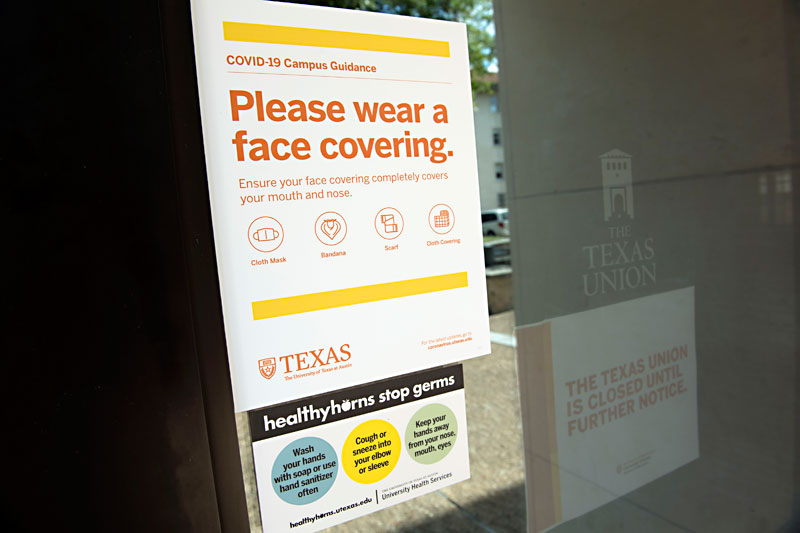UT Won’t Notify Entire Dorm of Positive COVID-19 Case
Officials cite CDC guidance and fear of “alarm fatigue” for decision to limit notifications
By Beth Sullivan, Fri., Sept. 11, 2020
When a University of Texas at Austin student living on campus tests positive for COVID-19, the entire residence hall will not be notified, according to UT spokesperson J.B. Bird.
Two weeks into the Forty Acres' reopening, UT-Austin has confirmed that at least two students living in on-campus dorms have tested positive for the novel coronavirus. The Daily Texan reports at least four cases in residence halls as of Sept. 3, but university officials have only confirmed one case each at the Jester and San Jacinto dorms.
When a test comes back positive, the university reaches out to neighbors on the student's wing or floor, Bird told the Chronicle. UT-Austin manages its own contact tracing team, which notifies close contacts – people who've spent more than 15 minutes in close quarters with someone infected – and advises them to get tested and self-quarantine. Potential secondary or casual contacts, on the other hand – such as these fellow residents – are advised to continue self-monitoring and social distancing, and also encouraged to sign up for UT's proactive community testing for individuals without symptoms. According to Bird, if a student in a large dorm doesn't receive a direct notification, "It means that they are not at increased risk of exposure resulting from the individual who tested positive." (Students living on campus who test positive must self-isolate off campus – either at a location of their choosing or one of the city's public isolation facilities.)
"While we could notify all residents of a large dorm when one person tests positive, there are public health reasons [why] we have chosen not to do so at this time," said Bird. Centers for Disease Control and Prevention guidance doesn't recommend notifying an entire dorm; Bird said that "if somebody on the first floor gets sick, somebody on the 10th floor would have no greater risk than they do in other areas of their life." Another reason is that University Health Services wants to avoid what Bird called "alarm fatigue" so students will take heed of "the call to action when they do receive a notification" about potential exposure.
At press time, 173 students have reported testing positive for COVID-19 since the first day of classes on Aug. 26, according to UT-Austin's COVID-19 dashboard. Last Wednesday, Sept. 2, witnessed the highest uptick in UT student cases since March 1, with 57 new cases reported. The university also saw a spike in positive results from proactive community testing, which before Aug. 30 had only returned one positive test. Between Aug. 30 and Sept. 5, the proactive testing strategy yielded 48 cases.
Got something to say on the subject? Send a letter to the editor.









